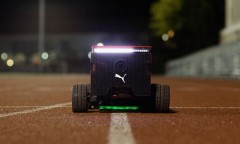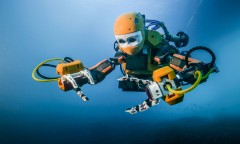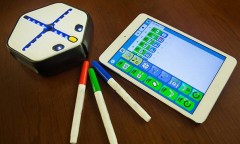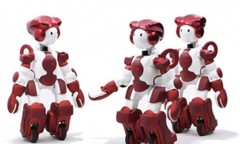By Steve Pak, | May 05, 2016
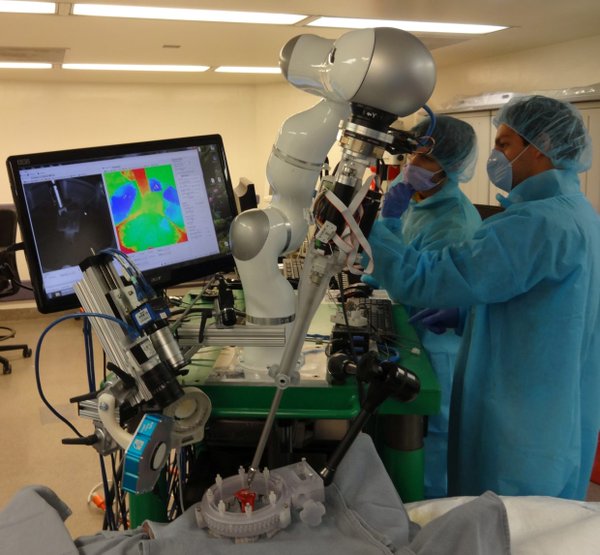
STAR Robot Surgeon
A robotic doctor has been developed by scientists that stitched up living animals without any human input. In the future this could result in autonomous robots performing major surgeries in hospital operating rooms. Human beings would still be required to supervise the medical androids, and Dr. Robot would only be used for certain types of surgical procedures.
Like Us on Facebook
The research's findings were published in the journal Science Translational Medicine on May 4, Wednesday. It featured the Smart Tissue Autonomous Robot (STAR).
Medical researchers did small tests using live pigs. The robot arms kept up with the human doctors and sometimes they worked even faster and better.
Scientists built the robot to add automation to soft-tissue surgery. STAR's computer vision technology uses 3D cameras and fluorescent markers to provide a high-precision view of the surgical area, according to Tech Crunch.
The robot surgeon then completes the actions using machine-like accuracy, speed, and efficiency. Humans had to help the mechanical doctor with some tasks, and were on standby for issues such as power failures or broken parts.
Dr. Peter C.W. Kim is a pediatric surgeon at Children's National Health System in Washington, and led the project. He explains that the project's goal was not to replace surgeons. Instead, the objective was to use an intelligent tool to improve the surgery's results, according to CNBC
During a Q&A session Kim stated that some or all of the project's technology could likely be used in commercial tools within one or two years.
The popularity of machines such as the Da Vinci might make it seem like robots are already working in hospital ORs. Some surgeons only use human-controlled robotics to operate on small openings in the human body.
However, robot-assisted surgery has resulted in a big debate about the issue. The findings of some studies show that the medical bots cause higher costs without better results.
Supporters of robotic surgeons still argue that there are cases when the high precision of a robot arm could provide better results than a human hand.
Dr. Umamaheswar Duvvuri is a head/neck surgeon at the University of Pittsburgh Medical Center and a robotic specialist. He stated that the project is the first "baby step" towards fully-autonomous robot surgeons. Duvvuri was not involved in the project.
Here's a robot stitching up a grape:
-
Use of Coronavirus Pandemic Drones Raises Privacy Concerns: Drones Spread Fear, Local Officials Say

-
Coronavirus Hampers The Delivery Of Lockheed Martin F-35 Stealth Fighters For 2020

-
Instagram Speeds Up Plans to Add Account Memorialization Feature Due to COVID-19 Deaths

-
NASA: Perseverance Plans to Bring 'Mars Rock' to Earth in 2031

-
600 Dead And 3,000 In The Hospital as Iranians Believed Drinking High-Concentrations of Alcohol Can Cure The Coronavirus

-
600 Dead And 3,000 In The Hospital as Iranians Believed Drinking High-Concentrations of Alcohol Can Cure The Coronavirus

-
COVID-19: Doctors, Nurses Use Virtual Reality to Learn New Skills in Treating Coronavirus Patients


